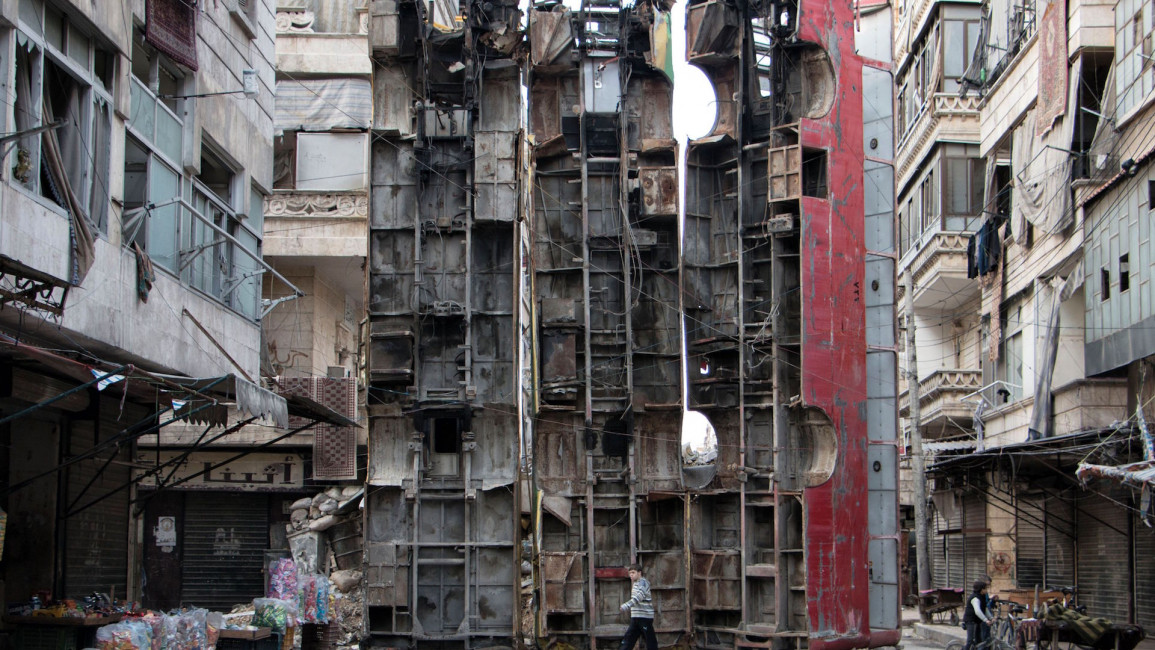Washington in denial over collapse of Syrian ceasefire
Even as a new barrage of bombs and shells pummeled besieged Aleppo once again on Monday, the United States refused to abandon efforts to broker a ceasefire.
US Secretary of State John Kerry expressed annoyance that Russia had publicly declared a week-old ceasefire "pointless" without consulting Washington.
And he insisted that Moscow must work harder to rein in its Syrian ally, even as regime forces returned to the offensive around the northern city of Aleppo.
A meeting of the 23-nation International Syrian Support Group was called for Tuesday on the sidelines of the UN General Assembly in New York to build support for the truce.
But Kerry was forced to admit the week-old ceasefire -- which he protested was "holding but fragile" -- had not led to a significant delivery of humanitarian aid.
And that Russia has not upheld its end of a ceasefire deal which would have seen Moscow and the US set up a military coordination cell.
Kerry told reporters: "We have not had seven days of calm and of delivery of humanitarian goods."
Under the terms of their agreement, the US was supposed to rein in opposition forces and Moscow was to ensure its ally Syrian leader Bashar al-Assad halted attacks.
 |
But the Syrian military announced Monday that after seven days it is ending its participation in the ceasefire, blaming the rebels for repeated breaches of the truce.
Apparently errant US-led airstrikes at the weekend, which Moscow says killed 62 Syrian soldiers, likely didn't help.
Kerry reacted testily to the declaration, but implied there was time to save the deal.
"It would be good if they didn't talk first to the press but if they talked to the people who are actually negotiating this," he told reporters.
Twitter Post
|
"And I think it's, as I said yesterday, time to end the grandstanding and time to do the real work of delivering on the humanitarian goods.
"So we just began today to see real movement of humanitarian goods, and let's see where we are.
"We're happy to have a good conversation with them and see how we proceed," he said, of the Russian side.
After Kerry went into more bilateral meetings, the State Department issued a statement to clarify the US position and insist on the need for more consultations.
 |
The US-Russian dialogue was the only opportunity on offer to end the fighting |  |
Continued attacks
"Despite continued attacks by the regime on opposition positions, we have witnessed a measure of reduced violence over the last week," spokesman John Kirby said.
"But we have not seen a sustained flow of relief supplies. Indeed, deliveries only began today and only then in limited areas."
"We are prepared to extend the cessation of hostilities, while working to strengthen it and expand deliveries of assistance.
"We will be consulting with our Russian counterparts to continue to urge them to use their influence on Assad to these ends."
Twitter Post
|
Kirby noted the Syrian declaration that the ceasefire is over.
But he added: "Our arrangement is with Russia, which is responsible for the Syrian regime's compliance, so we expect Russia to clarify their position."
French Foreign Minister Jean-Marc Ayrault sounded pessimistic, but said the US-Russian dialogue was the only opportunity on offer to end the fighting.
"It must retain a glimmer of hope," he said. "It is the only basis the international community can draw on."
Under the deal, if the level of fighting had dropped for seven days and aid had gotten through, the US and Russian militaries were to have set up a joint targeting cell in Geneva.
That would enable them to carry out more accurate strikes on the Islamic State group and Fateh al-Sham Front, formerly the Al Nusra Front.
US and Russian officers met Monday in Geneva, but the defense ministry in Moscow said it would be "pointless" to continue the truce in the face of rebel violations.
Dave Clark is a journalist with AFP



